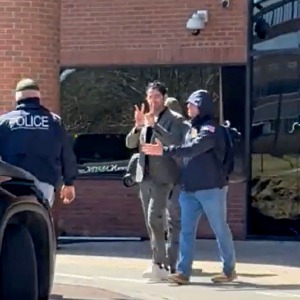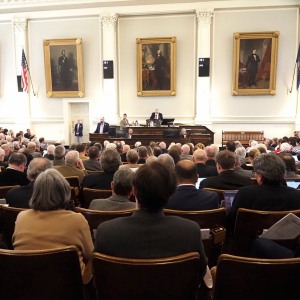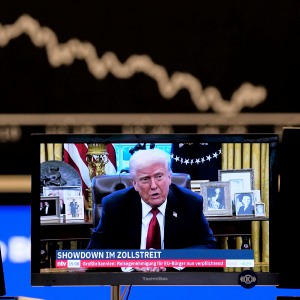A Yankee Notebook: A day for patriots of all seasons
| Published: 04-16-2025 1:16 PM |
THESE are the times that try men’s souls. The summer soldier and the sunshine patriot will, in this crisis, shrink from the service of their country; but he that stands by it now, deserves the love and thanks of man and woman. Tyranny, like hell, is not easily conquered; yet we have this consolation with us, that the harder the conflict, the more glorious the triumph. What we obtain too cheap, we esteem too lightly: it is dearness only that gives every thing its value. Heaven knows how to put a proper price upon its goods; and it would be strange indeed if so celestial an article as FREEDOM should not be highly rated. — Thomas Paine
Not bad for a disaffected corset-maker and new immigrant to the United States during a war — in Paine’s case, the American Revolution, which won for our ancestors the freedom from monarchy, religious institutions and onerous taxation. This week we celebrate the 250th anniversary of the first battle of that revolution, and the nocturnal ride of alarm that finally roused the settlers in armed opposition.
We hear the term, “patriot,” a lot these days. It has a multiplicity of popular definitions, but comes originally from ancient Greek, in which it meant “fellow countryman.” It has evolved in modern American English to describe someone who loves their country and aspires to defend its freedoms and rights. As we look about us in our current chaotic state, it’s easy to see where Paine got his idea of the “sunshine patriot.”
In my grade school days, I was lucky enough to be taught by women who, were they in their prime today, could be president of General Motors or running for president. Instead, their brilliance was spent on us, for which I’m still grateful. Sure, we saluted the flag each morning and had a Bible reading before class, but I can’t see that any of that made any difference. What made a big difference was the heroic lore of the early days of the nation — George Washington, Benjamin Franklin, Nathan Hale, Henry Knox, Benedict Arnold and Betsy Ross, to name a few.
And Paul Revere! We learned a lot of patriotic poetry, but “Paul Revere’s Ride” is the poem that sticks forever in most people’s minds. “A hurry of hoofs in a village street, a shape in the moonlight, a bulk in the dark, and beneath, from the pebbles, in passing, a spark struck out by a steed flying fearless and fleet…” Call me a sentimental old fool, but those lines still thrill me. When we visited the incredibly beautiful Mount Auburn Cemetery in Cambridge, Mass., a couple of years ago, I spent long moments beside the Longfellow grave plot reciting all I could recall of his most famous poem. I suspect many others have done the same.
Revere himself was, during a period of our history that saw us deeply divided, a patriot to the core. He served occasionally as a courier for the nascent revolution, carrying messages. If he’d been intercepted by a roving British patrol and his mission discovered, he’d’ve been shot or hanged on the spot. But he was intact and ready on the 18th of April, when patriot leader Dr. Joseph Warren called upon him and William Dawes to be ready to spread the alarm that night should the British begin a night march to surprise Concord and Lexington, as the rumor was they would.
They did, first crossing the river to the Charlestown shore. The watcher in the Old North Church tower spots “a shadowy something far away, where the river widens to meet the bay, – a line of black that bends and floats on the rising tide, like a bridge of boats.” He displays two lanterns in the belfry, and Revere, waiting impatiently on the Charlestown shore, “booted and spurred” beside a borrowed (and apparently speedy) horse, is on his way.
There were no street lights or other illumination. If the moon was shining that night, it was waning gibbous. If you’ve ever ridden a horse very fast in the dark, you can imagine the risk as Revere covered the 20 miles to Concord, shouting in the road or courtyards, rousing the Minutemen with their ancient muskets and fowling pieces. In Concord the British shot a few defenders as, outnumbered, they dispersed. But two miles farther on, they ran into a better-organized militia, who chased them back across the rude bridge over the river, and traded volleys till the British, a long way from home and no doubt low on ammunition, began an orderly retreat that, in spite of hurried reinforcement, became nearly a rout.
Article continues after...
Yesterday's Most Read Articles
 Tree-clearing work near power lines causes Upper Valley outage
Tree-clearing work near power lines causes Upper Valley outage
 Lebanon to close street, block parking to allow outdoor dining
Lebanon to close street, block parking to allow outdoor dining
 Grantham superintendent resigning to become EMT amid rising political attacks on schools
Grantham superintendent resigning to become EMT amid rising political attacks on schools
 Residents disappointed Canaan’s Goose Pond won’t be full in time for summer
Residents disappointed Canaan’s Goose Pond won’t be full in time for summer
 Fairlee Drive-in won’t open for season this summer
Fairlee Drive-in won’t open for season this summer
Longfellow speaks to us would-be patriots yet: “A cry of defiance, and not of fear … In the hour of darkness and peril and need, the people will waken and listen to hear the hurrying hoofbeats of that steed, and the midnight message of Paul Revere.”
May you have a Patriots’ Day safe and secure in your free homeland.






 Editorial: Vermont judge defends free speech
Editorial: Vermont judge defends free speech  Editorial: Free speech detentions reach into Upper Valley
Editorial: Free speech detentions reach into Upper Valley Editorial: New Hampshire budget shortfall is a crisis of Republican design
Editorial: New Hampshire budget shortfall is a crisis of Republican design Editorial: Time is running out for American democracy
Editorial: Time is running out for American democracy
